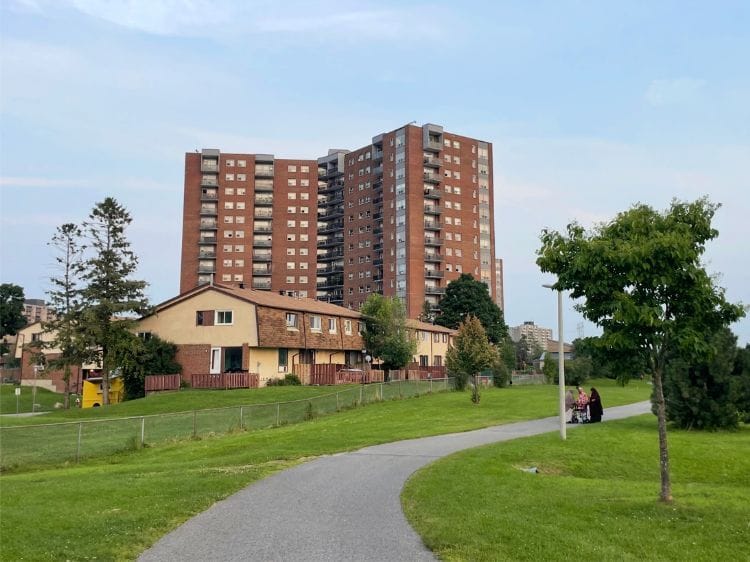Savings incoming: If you live in an older apartment building in Ottawa, get ready to save on rent. The city is planning to lower the property tax rate for multi-residential buildings built before 2001.
The reduction will take place over four years and will lower the Multi-Residential tax ratio from 1.4 to 1.0. It’s important to note properties built after 2002 are already at a ratio of 1.0. Currently, the tax for an older multi-residential building is 1.4 times the rate of a residential property.
The change is welcome news to Capital Ward Coun. Shawn Menard who last year asked city staff to explore the possibility of a proactive ratio reduction for the multi-residential ratio.
“It's about fairness at the end of the day because you've currently got different property tax rates for multi-residential versus residential,” Menard told the Lookout. “We know that renters continue to struggle in a high rent environment in Ottawa and we talk a lot about supply to reduce the costs of housing. Well, this is actually the most direct way you can reduce people's housing costs because it must be passed along by the owners of those properties to renters.”
The changes mean landlords cannot legally can't pocket the savings.
By the numbers: By lowering the Multi-Residential tax ratio to 1.3 in 2025, a multi-residential property would experience a 7.4 per cent decrease or a 4.5 per cent decrease after the approved 2025 budgetary increase, says city staff.
That would equate to a 0.89 per cent forced rent reduction in 2026. A person paying $2,000 per month in rent would see about $16 taken off their monthly costs — totalling about $192 in savings next year.
By lowering the tax ratio by 0.1 per cent, it would reduce property tax revenue for the city by $8.8 million. That would be offset by a 0.4 per cent tax increase for all other property tax classes. The city notes a “residential property assessed at $415,000 would experience a tax increase of $19 per year.”
The reason why the reduction is being done over four years is because if the city did it all at once, it would result in an immediate 1.6 per cent tax increase. For a residential property of the sale value, it would result in a tax increase of $69 per year.
So what more can be done? “Obviously, incentivizing the creation of more multi-residential is important. There's some development charge changes that I've advocated for to be made that would make it more palatable or incentivize things like multi-residential to be built around the city and more so within the Greenbelt,” said Menard.
Another positive impact: Ottawa is building a lot of rental units, but vacancy rates could start to increase in recent years, says the Canada Mortgage and Housing Corporations. That’s because of government initiatives and a drop-off in immigration, reported CityNews. Ottawa’s vacancy rate could be around 2.9 per cent this year.
But it’s still expensive: In January the average rent in Ottawa rose by $49 a month, wrote CTV. The average cost of an apartment in Ottawa that month was $2,214, up from $2,165 in December and $2,171 in November.
But it all depends on the number of rooms and square footage. January 2025 numbers showed it cost $1,638 to rent a bachelor, $2,553 a month for a two-bedroom apartment and $2,618 for a three-bedroom apartment. The highest rental rates were in the suburb of Kanata where the average apartment rental was $2,646 a month.




